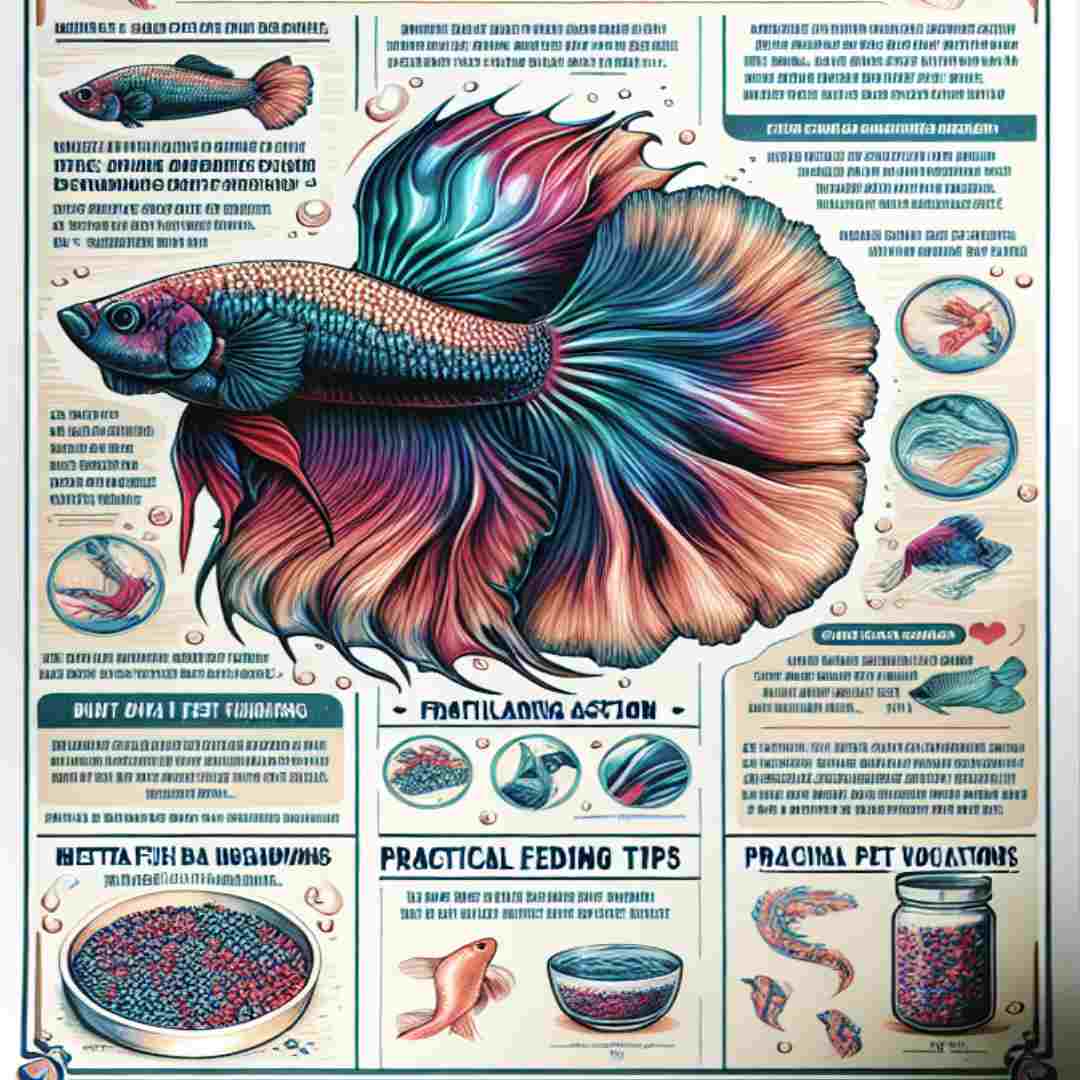Betta fish, with vibrant colors and flowing fins, are a favorite among pet lovers and aquarists. However, with ownership comes responsibilities, and one of the most common questions is how long a betta fish can go without food. Whether you’re planning a vacation or simply curious about your aquatic friend’s resilience, it’s essential to understand the dietary needs of bettas. This post will guide you through everything you need to know, from understanding betta biology to practical feeding tips.
Understanding Betta Fish Metabolism
Bettas are small, but their metabolic processes are fascinating. Unlike humans, bettas have a much slower metabolism, so they don’t need to eat as frequently. Their digestive system is adapted to the sporadic feeding patterns they would experience in the wild. This slower metabolism allows them to survive more extended periods without food. However, it is vital to ensure they still get the nutrition they need for optimal health.
Natural Habitat Influences
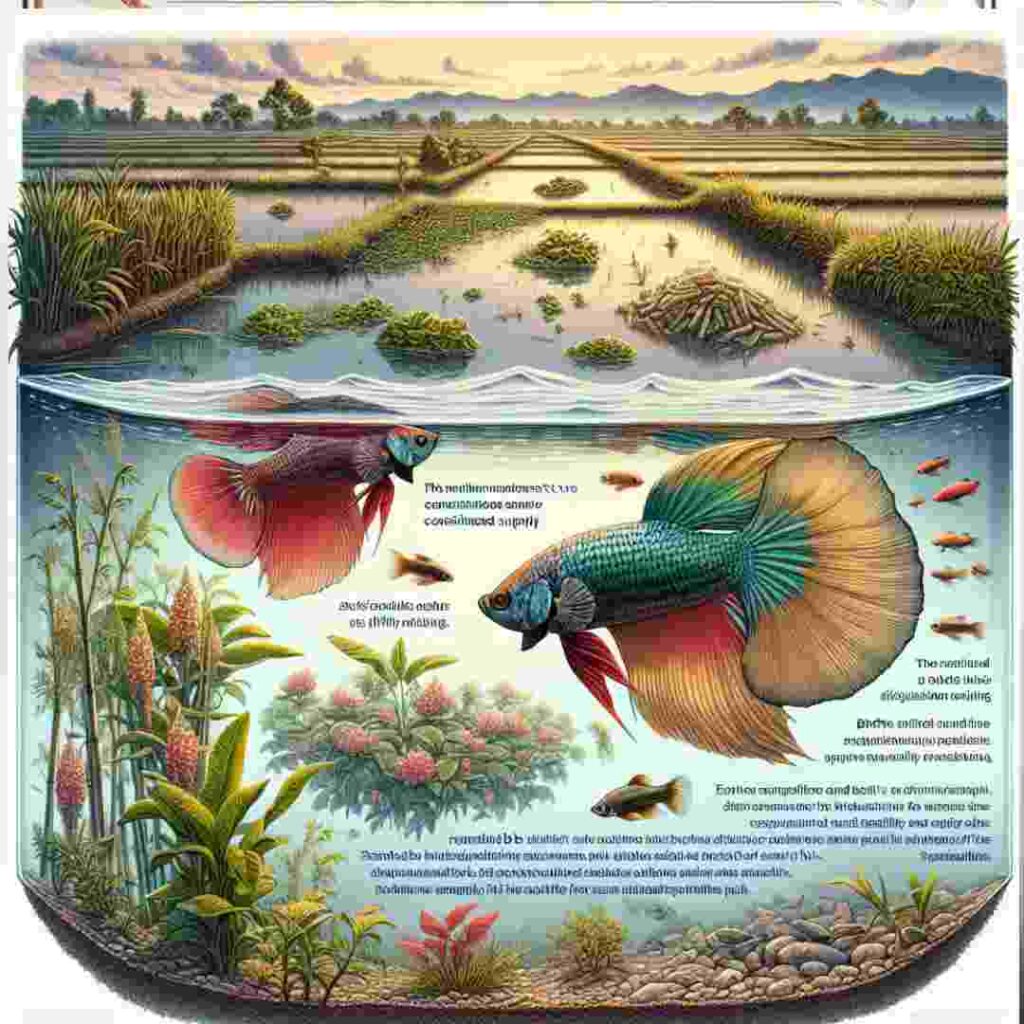
In the wild, bettas are found in shallow Southeast Asian waters, such as rice paddies, ponds, and slow-moving streams. These environments don’t always provide a constant food supply, so bettas have evolved to survive without regular meals. Understanding this natural adaptability helps aquarists appreciate bettas’ resilience, but balancing this knowledge with responsible care is essential.
Factors Affecting Fasting Tolerance
Several factors influence a betta fish’s ability to go without food, including age, health, and water conditions. Younger and older bettas might be less tolerant of fasting due to their specific nutritional needs and weakened immune systems. Additionally, stressors like poor water quality or sudden changes in the tank environment can affect their resilience during fasting periods.
Ideal Feeding Frequency
Most experts recommend feeding them once or twice a day to maintain a healthy betta. Each meal should be small, as overfeeding can lead to digestive issues and water pollution. A varied diet that includes high-quality pellets, live or frozen food like brine shrimp, and occasional treats will keep your betta happy and healthy.
How Long Can Bettas Survive Without Food?
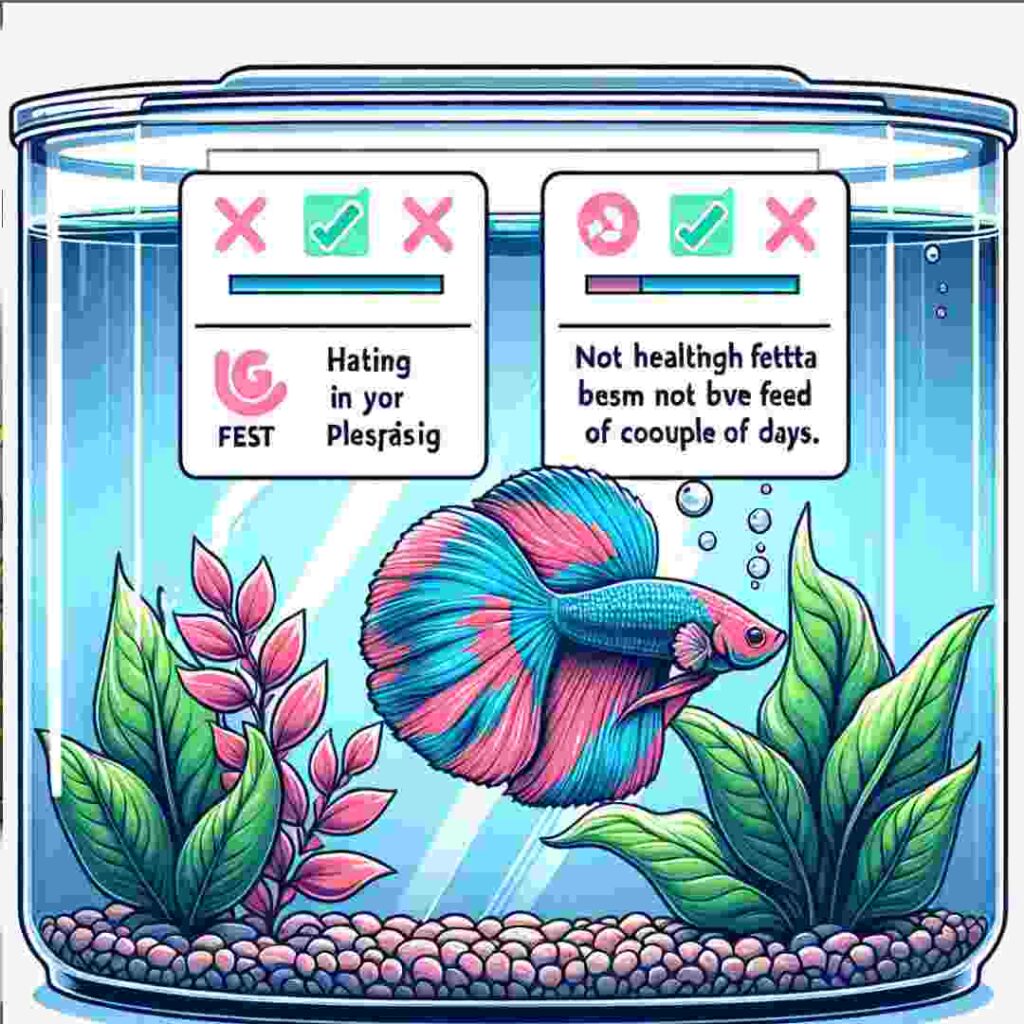
A healthy adult betta can typically survive 5 to 7 days without food. While this isn’t ideal for prolonged periods, it can be a relief for owners planning short trips. However, any longer than this can lead to malnutrition and stress. Always ensure your betta’s tank is clean and properly maintained if you must leave them unfed for a few days.
Preparing for Short Absences
If you’re planning a short vacation or work trip, you can take steps to ensure your betta’s well-being. Start by cleaning the tank and checking the water parameters. Consider a holiday feeder block, but be cautious, as these can sometimes lead to water quality issues. Alternatively, ask a trusted friend to feed your betta in your absence.
Signs of Malnutrition
Recognizing signs of malnutrition in bettas is crucial, as prolonged fasting can take a toll. Look for symptoms like lethargy, clamped fins, weight loss, or a dull coloration. If you notice these signs, consult a vet or an experienced aquarist to address the issue promptly.
Balancing Fasting and Feeding
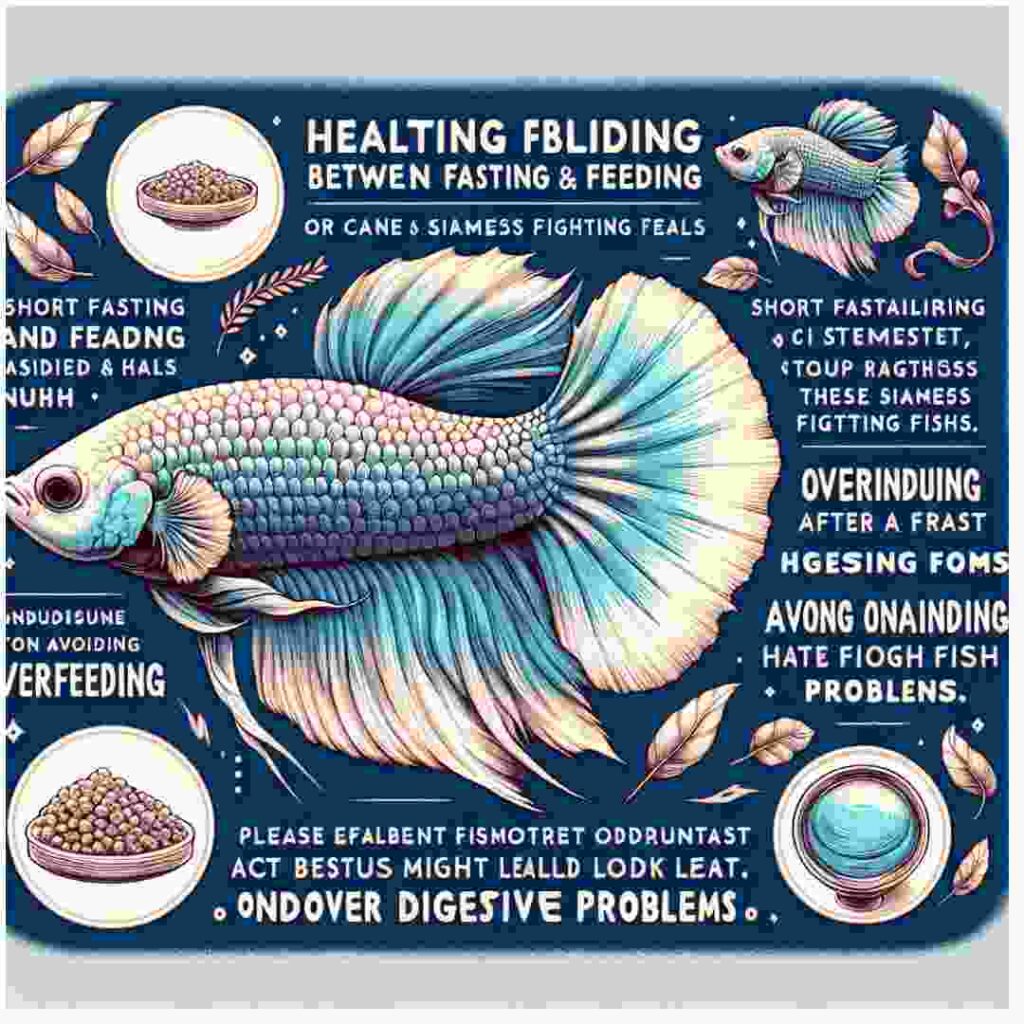
Finding the right balance between fasting and feeding is critical to betta care. While bettas can tolerate short fasting periods, regular and nutritious meals are essential for their overall health. Avoid overfeeding after a fast, as this can cause digestive distress.
Common Feeding Mistakes to Avoid
Some common feeding mistakes include overfeeding, offering low-quality food, and not diversifying their diet. Avoiding these pitfalls is essential to ensuring your betta thrives. Stick to a consistent feeding schedule and choose high-quality, betta-specific food options for the best results.
The Role of Water Quality
Even if your betta can go without food for a short time, water quality remains crucial to their health. Regular water changes, monitoring pH levels, and maintaining a stable temperature will help create a stress-free environment, making your betta more resilient during fasting periods.
Creating a Betta-Friendly Environment
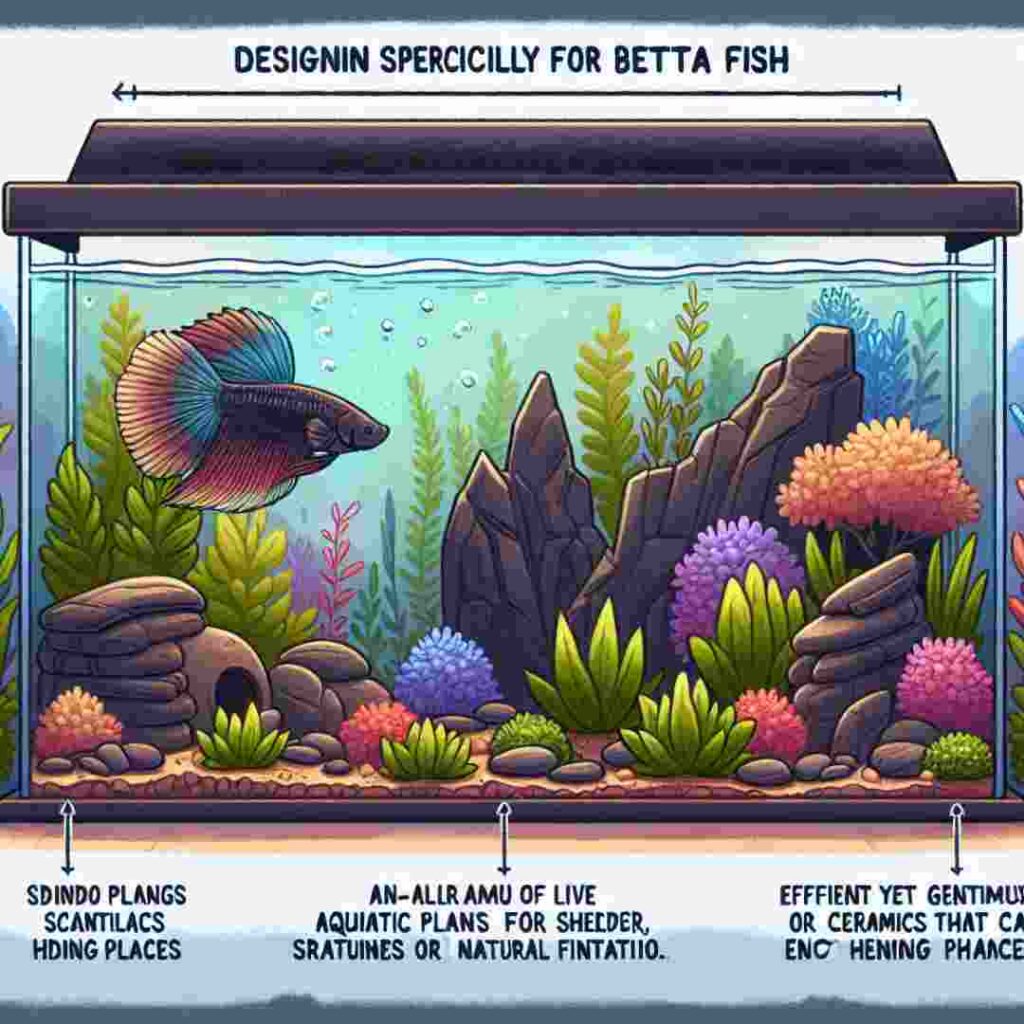
A well-maintained tank is essential for your betta’s well-being. To mimic their natural habitat, include plants, hides, and a gentle filtration system. These environmental enhancements will provide enrichment and keep them engaged, especially when food is less frequent.
Engaging with the Betta Community
Connecting with fellow betta enthusiasts can provide valuable insights into betta care. Joining forums social media groups, or attending local aquarist events can offer support and share experiences. This community interaction can help you learn new feeding techniques and address concerns.
Seeking Professional Advice
When in doubt, seek advice from professionals. Veterinarians with experience in aquatic life or seasoned aquarists can provide guidance tailored to your betta’s needs. Professional advice is invaluable, especially if your betta shows signs of health issues or stress.
Conclusion
Understanding how long a betta fish can go without food is just one aspect of responsible pet ownership. Being informed about their dietary needs, natural behaviors, and environmental conditions ensures your betta remains healthy and vibrant. Remember, while they can endure short fasting periods, regular, nutritious meals and a stable environment are critical to their happiness. If you seek further guidance, consider contacting the betta enthusiast community or consulting experts to enhance your care routine.










